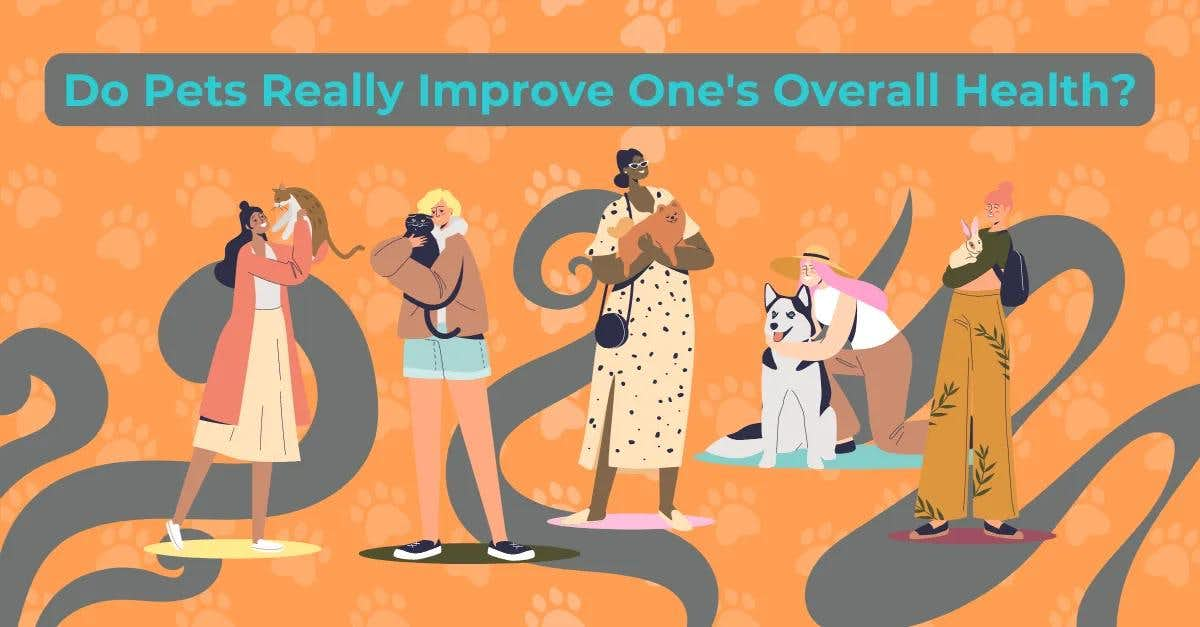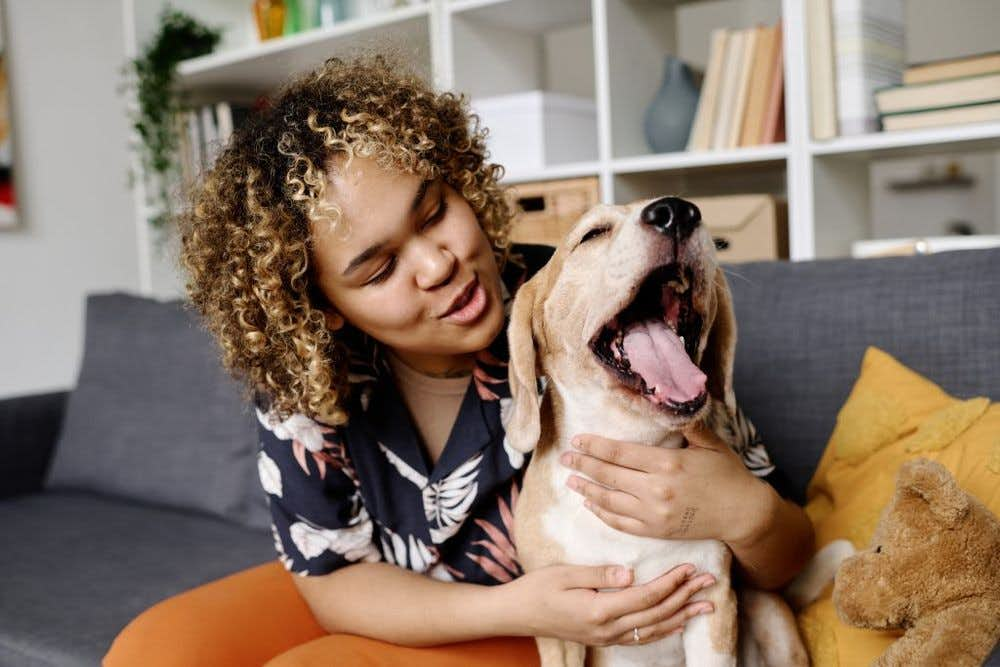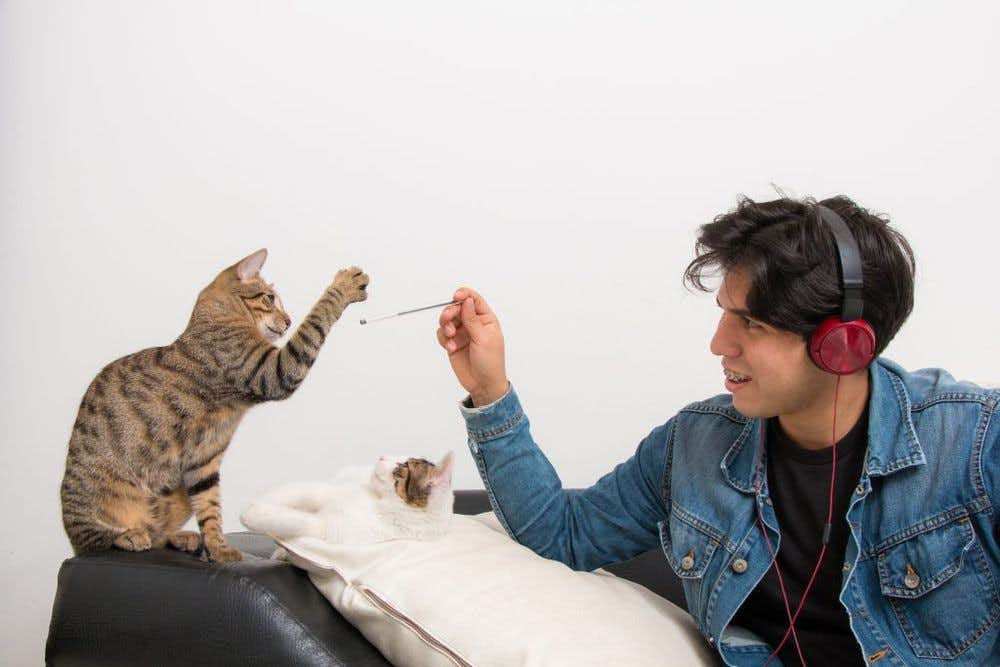June 2nd, 2020

“There is nothing truer in this world than the love of a good dog.” - Mira Grant
If you are not a pet owner, you may not know how much joy comes from sharing your life with an animal. A pet becomes an owner’s best friend and lifelong companion. But what else does having a pet offer? Many people are unaware of the positive health benefits, both mental and physical, that come with owning a pet.

Owning a pet (particularly a dog) gives owners more opportunities to get exercise by going outside and socializing. This increase in general exercise helps to prevent a long list of health problems.
Some examples of ways pets improve physical health are:
An increase in exercise is not the only way pet ownership improves your overall quality of life. Pets bringing in more dirt and germs from the outdoors help to boost one’s immune system. Pets are similar to probiotics, exposing owners to different types of bacteria.

Socializing with a dog may reduce levels of cortisol. Cortisol impacts a lot of aspects of one’s health, best known for being “the stress hormone.” Pets also provide unconditional love and companionship which can help manage our loneliness and reduce depression.
Other ways owning a pet can improve mental health:
Research has shown that owning a pet can benefit the whole community. Pet owners are more likely to acknowledge and greet neighbors in the street. What better way to get to know your neighbors than to chat while walking your dog? They are adorable and make a great conversation piece.
Spending your childhood around pets has different types of health benefits. Children who grow up with pets have less risk of allergies and even asthma. Children also can learn life lessons from pets such as responsibility, compassion, and empathy.
Children that grow up caring for an animal also grow up to be more confident, secure, and active. The companionship a pet can offer to a child makes them feel important and helps them to develop a positive self-image. Kids with an emotional attachment to a pet are also better at building relationships with other people.
Other ways pets improve children’s health:

Having a dog or cat with you while you’re in therapy may sound strange or even useless to some people. Yet, animal-assisted therapy has been proven to improve a person’s overall functioning by utilizing animals therapeutically. These animals help provide support to patients throughout the healing and rehabilitation process of therapy.
Animals are non-judgmental and accepting which helps patients feel more comfortable opening up and expressing their feelings. Animal interaction also releases endorphins that produce a calming effect, helping the patient to feel more relaxed and safe. As a result, this influences positive therapeutic outcomes.
How does involving animals in therapy improve a patient’s overall functioning?

Before running out and getting a pet, be careful to choose your pet wisely. Both the type of pet and breed of a pet can greatly affect your experience. If you are not very active, you may want to select a less energetic dog. If you do not have a fenced yard, you may want to consider a dog that is not a runner.
Just remember, it is your responsibility to make sure to keep your dog under control at all times. Obedience training and socialization with both people and other pets are always a good idea.
Consider doing the following for an even better experience:
You may just find that selecting and owning a pet might be one of the most rewarding decisions you will ever make. And along with those rewards, you will find that there are some really great, and real, physical and mental health benefits!
At Clarity Clinic, we have highly trained staff who specialize in therapy and psychiatry services. To learn more about how we can support your mental health, call Clarity Clinic on (312) 815-9660 or schedule an appointment today.

Our Services
Virtual/Online CarePHP and IOPAdult PsychiatryChild & Adolescent PsychiatryAdult TherapyChild & Adolescent TherapyCouples CounselingFamily TherapyGroup TherapyPsychological TestingTranscranial Magnetic Stimulation (TMS)Resources
Refer a PatientCareersClinical Training OpportunitiesOur ProvidersFree Mental Health TestsCommonly Prescribed MedicationsLocationsBlogIn The NewsClarity Through CharityClarity for AllQuick Links
Patient PortalFAQsAccepted InsurancesContact us